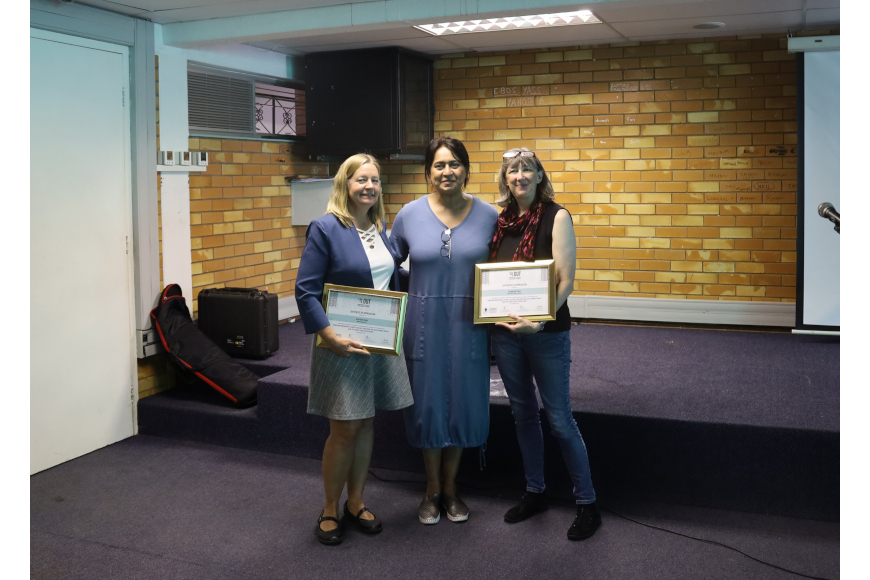Supporting Undergraduate Research Excellence (SURE) Professional and Academic Development Workshops were held at Musgrave Coastlands Hotel on Monday, 12 September 2022 and at DUTs Innobiz Centre for Entrepreneurship and Innovation (Indumiso Campus) on Wednesday, 14 September 2022.
In opening the workshops, the project leader and manager Dr Anisa Vahed explained that the SURE project “emerged as a strategic intervention to advance the reported benefits of undergraduate research (UGR), a renowned high-impact practice.” She expressed her deepest gratitude to the former DVC: RIE Prof. Sibibusiso Moyo for supporting the objectives of the project back in 2019. Aligning with ENVISION2030, Dr Vahed pointed out that “SURE promotes using inquiry-based pedagogies to stimulate creative inquiry, generate new knowledge, and develop understandings of methods of inquiry in addition to teaching about research.”
She said that “despite the challenges experienced during the peaking periods of the COVID-19 pandemic, a total of nine Virtual SURE events were held with the first one conducted on the 20th of September 2020 to date.”
Dr Vahed was elated to have two renowned advocates of undergraduate research, namely Dr Anne Boettcher from Embry–Riddle Aeronautical University (ERAU) in Prescott, Arizona (USA) and Dr Bethany Usher from George Mason University in Fairfax, Virginia (USA) facilitate the SURE workshops.
In the morning workshop the facilitators engaged DUT colleagues on how to use a backward design to scaffold and reinforce undergraduate research skills in the curriculum. DUT colleagues were exposed to models on undergraduate research and the criticality of scaffolding the learning goals with institutional, programme goals.
Dr Boettcher added that she believes that at an undergraduate level, thinking about the process piece not the product is key, and how does this impact them as a new programme, as well as why they are doing this.
“At least when I’m in a classroom with the students that’s the first thing we talk about, why are you doing this, we have an alienation programme,” explained Dr Boettcher. Furthermore, she elaborated that many undergraduate students do not pursue postgraduate studies and choose to work in the industry. Therefore, “it’s vital to make sure that when they leave, they leave as problem-solvers and understand the process and get to feel included in the process, self-regulated learners will continue the learning process when they leave as they possess transferable skills, which are both technical and professional” she said.
The focus of the afternoon workshop was on “teaching and mentoring undergraduate research mentoring”.
The interactive session helped in identifying the ‘salient practices’ of undergraduate research teaching and mentoring, which promotes student engagement, persistence, research quality, and degree completion.
This session also discussed how to adapt and use evidence-based practices to support undergraduate research across disciplines. The session concluded by introducing several freely available resources to improve student mentoring.
Pictured: Dr Bethany Usher, Dr Anisa Vahed, Dr Anne Boettcher
Nonkululeko Ngcobo


